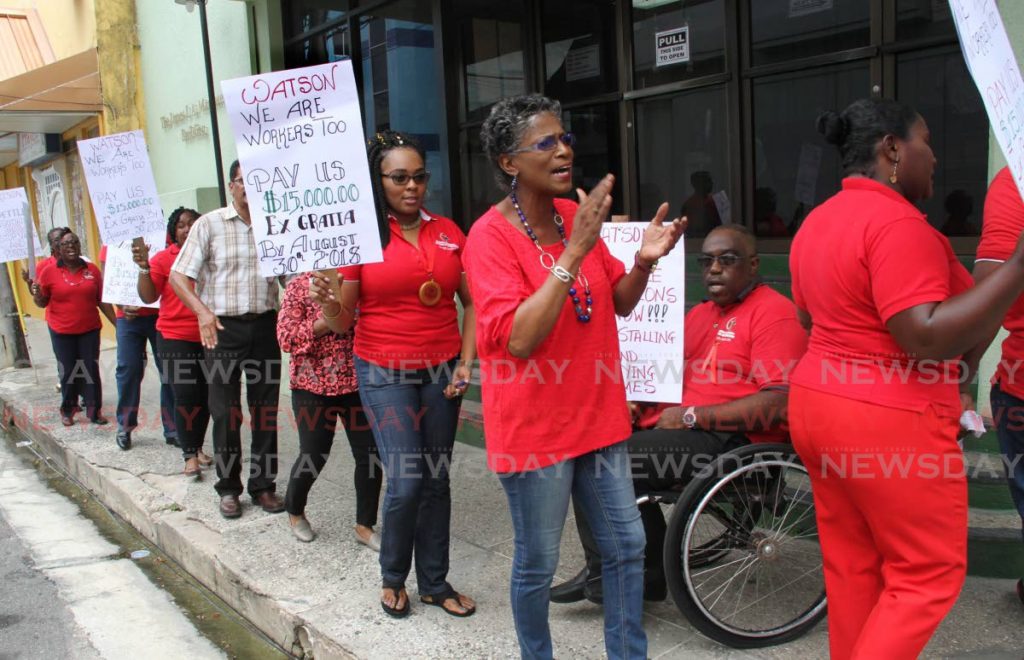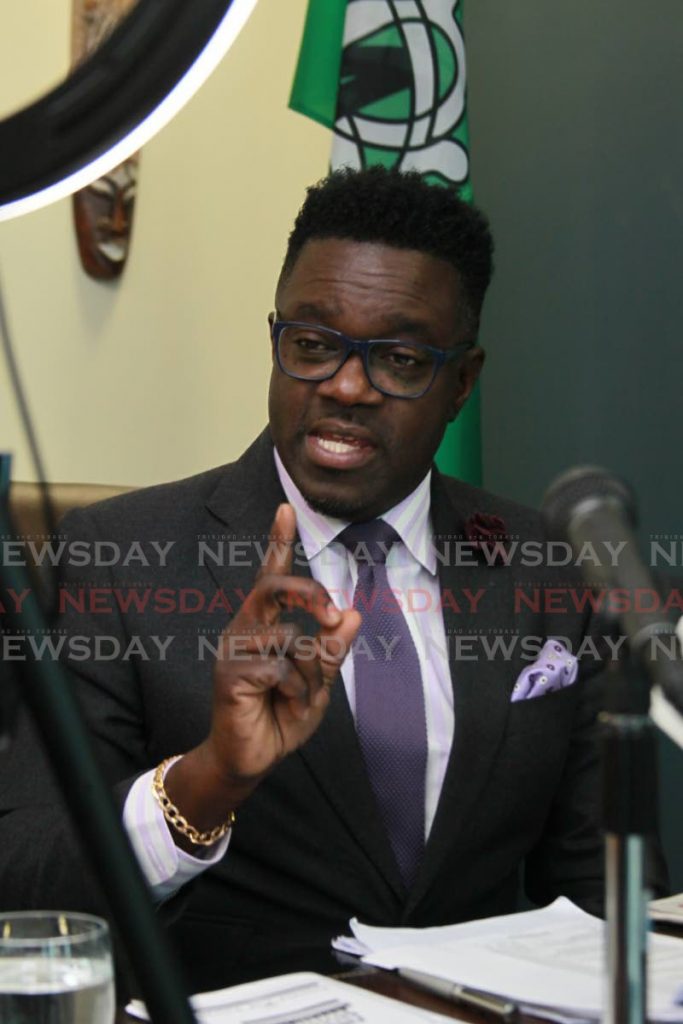Public Services Association audit reveals what's wrong with the public service

There was a time in our history when Trinidad and Tobago had no Parliament, when elections resulted in a tie which resulted in no political party in power.
I was tempted to say no government, but that would be untrue, as for most of us, life went on as usual. The courts functioned, licences were issued, the buses ran on time (well, more or less on time), children went to school, shops opened and sold goods or doubles as the case may have been, police directed traffic and those people who usually paid taxes paid taxes, while those who collected pensions under the names of people long dead continued to collect.
While Trinis see themselves as rango tango, independent and fete-loving people, the society remained remarkably stable. The social disorder and disintegration of society that the politicians anticipated would take place without their leadership just did not happen.
The basic stability of this society is one of its best-kept secrets, and the force behind the stability was the public service. There were no ministers to interfere in awarding contracts or to appoint scarcely qualified friends to executive positions on state boards, so permanent secretaries and senior civil servants calmly moved in and just kept things going as usual. In some cases, more smoothly than usual.

Whereas in the Middle East things would have fallen into disorder, disruption and disintegration, TT, with a discipline people didn’t actually recognise in themselves, just kept going on a more or less even keel.
It was a remarkable achievement that scarcely anyone at the time remarked upon because it was taken for granted.
In a very real way, it was TT’s finest hour, a brilliant example of the professionalism of the public service and the trust the populace had in it.
What happened? The public service is a business that operates under the same laws, rules, and accountancy that every other business in TT does. How did such an honourable and professional organisation deteriorate to the level where thousands of citizens whom, by definition, the public service is there to serve cannot even get the grants they were promised to help them survive the lockdowns imposed upon them?
Where even the Prime Minister and the President, who strangely appear to be the last to know, publicly complained that although the 80,000-strong members of the Public Services Association (PSA) continued to be paid during the pandemic, they were not bothering to turn up for work even on their “scheduled” days, while 200,000 plus workers blocked out of their jobs were unpaid, dependant on food donated by religious organisations and corporate donors to feed their children?
What happened to the pride, the honour and the discipline in the last four years?
The publication of the audit report of the PSA’s finances last weekend covering Watson Duke’s latest stretch as president of the PSA gave ample evidence of the deterioration. It didn’t happen in just those four years.
The public has already suffered through press publication exposing Mr Duke’s generous contracts and preferments at WASA which, apparently, he is being allowed to get away with.
To top that level of exposure of corruption with the PSA audit report that an expenditure of over $6.3 million was unaccounted for under his leadership of the PSA is mind-blowing!
This president has been in office for the last nine years. He is not working alone. He is surrounded by an executive council that has supported his lack of accountability, his over-expenditure of salaries, allowances and other emoluments not only to Mr Duke himself, but to them, his associates as well, with no authorisation by the general membership.
This is according to the audited report that had to be ordered by the High Court.
It is not that there were no honest people in the PSA, although it may seem so to the public. There were an honest and concerned few that took the matter to court, but what of the membership?
Why did they allow it to go on for so long? Why did they allow their once-respected and honoured organisation to be raped so openly? Why did the warning by new general secretary Oral Saunders mere weeks after the 2009 Duke election to office, pointing to malfeasance. even then go ignored?

We once respected and honoured the public service. People like Reginald Dumas, Frank Rampersad, Scotty Lewis, Joyce Wong Sang, Elizabeth Quamina, Doddridge Alleyne, Joan Massiah were our heroes.
I could list a hundred others; their memories have all been tarnished by what has been allowed – yes, allowed to happen. There are disciplinary offences that the Constitution lists in relation to public servants. I can safely bet that members of the public do not know that.
"Acts of indiscipline by public servants," they are called; check them out: Ch1:1, 2nd Schedule, Regulation 85, offences such as
• Failure to attend to matters promptly within their scope of office
• Lack of courtesy to a member of the public
• Wilful failure to perform duties
• Absence without leave or reasonable cause
• Failure to disclose activities outside the service
• Acts that discredit the reputation of the service
• Disobedience to obey orders.
I could go on – there are others such as “malingering” – but why bother? No one in leadership seems to care.
The publication of the audit report states openly that “controls designed to protect the interests of the PSA were being circumvented by the executive,” and leads members of the public inevitably to ask: “If priest could play mas…”
And so we look at other branches of government. Should we demand audits of police? The licensing office? Customs and excise? The medical service? The education service?
Does anyone there care? What did Shakespeare say about the “state of Denmark”?


Comments
"Public Services Association audit reveals what’s wrong with the public service"